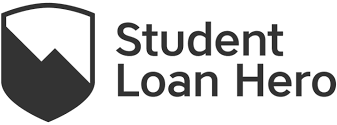The idea of taking out loans can seem intimidating or counterproductive. But there are plenty of times when loans can come in handy. We’re not talking mortgage size loans here – loans don’t have to be for large amounts and they don’t have to be for tuition payments. Read on to learn how and when to use loans, and what may be the best options for you!
What is a loan, and why get one?
A loan is a way to get a sum of money, which you will be required to pay back later. Loans have interest rates and terms, meaning that you will eventually pay back in a certain timeframe (called amortization period) more than you originally borrowed. Different types of loans have different interest rates and different timelines for repayment.
Loans have interest rates, meaning that you will eventually pay back more than you originally borrowed.
Often, we consider loans solely in the context of paying tuition. And while loans can be helpful for that, small loans can also be helpful for other things. Say you need to spend a lot of money all at once — perhaps you are moving, or need to fix a vehicle — but because you get paid monthly, you do not have that much cash on hand. A loan might then be a good way to get that money together, knowing that as you get paid over the next few months, you will have the funds to pay back the loan.
What type of loan should I get?
As a Yale student, there are three types of loans you can consider: a federal loan, a Yale loan, or a private loan.
Federal student loans are given by the federal government, and often have low interest rates. If you have demonstrated financial need, you may qualify for a subsidized loan, which charges no interest for the duration of your time as a student. If you do not demonstrate financial need or you have exhausted your subsidized loan, you can still get an unsubsidized loan, which has a fixed interest rate lower than most loans.
Yale loans can be applied for through the Yale financial aid office. Yale’s financial aid is meant to cover 100% of the cost of tuition using grants, so without any need for loans. Some students may want to use loans to cover the Student Share of their financial aid package or you may just need a few hundred dollars to cover an unexpected expense. Should you wish to do so, you may apply for a loan through the Office of Undergraduate Financial Aid — see the office’s website for more information!
Private loans come from banks, credit unions, or individuals, rather than the federal government. These are an option if you do not qualify for or have already used federal and Yale loans. Interest rates and repayment plans vary greatly depending on the lender — make sure to do your research first and find a loan with a low interest rate.
Before you take out a loan, make sure you fully understand the repayment terms, and then make a personal plan as to how you are going to pay back a loan. Always know that you can repay the loan before you take one out.
Check out some of the resources in our database below to search for loans, and see more advice as to how to pick the right loan plan for you.











